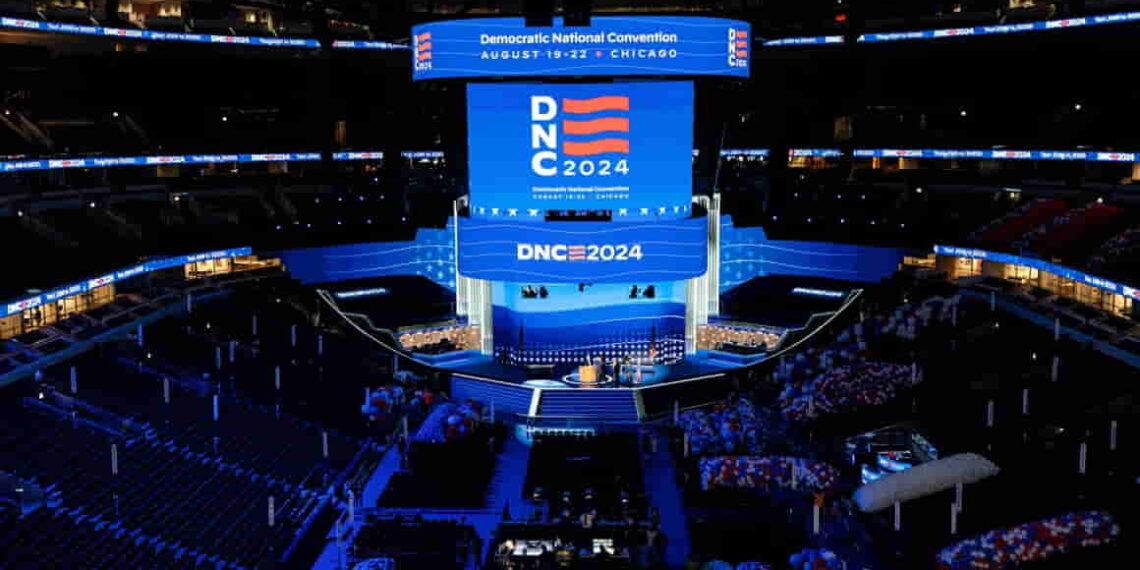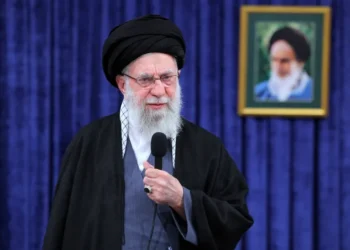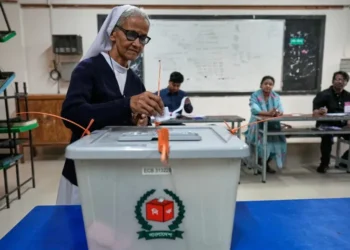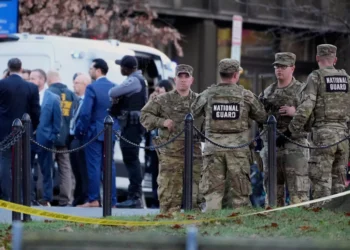Democrats Seek New Leadership as Party Faces Uncertainty
As the Democratic Party looks to rebuild after disappointing losses in the 2024 election, it faces a crucial task of selecting a new leader. The search for the next chair of the Democratic National Committee (DNC) is underway, but with just weeks to go before the February 1 election, the party is still grappling with who will steer it forward in the wake of setbacks.
The DNC chair race officially began on Saturday with a virtual forum featuring eight candidates, though no clear frontrunner has emerged. The field includes Minnesota Democratic-Farmer-Labor Party Chair Ken Martin, Wisconsin Democratic Party Chair Ben Wikler, former Maryland Governor Martin O’Malley, and several others, but support remains fragmented, and the race is far from decided.
A Critical Moment for the Democrats
The DNC’s choice of a new chair is the first significant decision the party will make after last year’s electoral losses. With just three weeks until the vote, the chair race has become a space for Democrats to reflect on their recent failures, reassess their strategies, and figure out how to regain the trust of voters who turned away in November. In particular, the party is questioning how millions of dollars spent in swing states were distributed, and whether those funds could have been better utilized.
Despite early speculation about high-profile candidates entering the race, the current contenders remain lesser-known figures within the party. For many in the DNC, this may be seen as a positive. Some members have expressed a desire for an “operative chair,” someone who is ready to do the hard work on the ground to rebuild the party.
The Key Role of State Party Leaders
With the DNC made up of state party leaders, union heads, and allied groups, securing support from the state party chairs and vice chairs is crucial to winning the race. This group controls about a quarter of the DNC’s votes, and their backing could prove pivotal in securing a majority of votes.
Over the next few weeks, the DNC will host additional forums, each focused on different regions. Upcoming events include a forum in Detroit (January 16), a virtual forum for the West (January 23), and a final in-person event in Washington, D.C. (January 30). These forums will give the candidates the chance to present their vision for rebuilding the party and address concerns like outreach, messaging, and funding.
The South and Southern Strategy
One key area that emerged during the first forum, focused on the South, was the importance of a “Southern strategy.” Christale Spain, the chair of the South Carolina Democratic Party, emphasized the need for a long-term investment to help Democrats win in Southern states. “We just cannot concede ground because it’s hard,” Spain stated. Several candidates, including Martin, highlighted the necessity of focusing on a 10-year strategy to counteract the political disinvestment in Southern states.
Rebuilding the Party: Reform or Continuity?
Beyond strategic shifts in messaging, many Democrats are hoping to see broader reforms within the party. The last time the DNC elected a new chair, after Trump’s 2016 victory, major reforms were put in place to address the concerns of progressives who supported Bernie Sanders. This time, candidates are being pressed on issues like messaging to working-class voters, accountability for political consultants, and investing more heavily in state-level parties that have seen insufficient funds despite the emphasis on battleground states.
Uncertain Endorsements and the Race Dynamics
As the race heads into its final stretch, it remains unclear who has the most support among DNC members. The party does not publicly release its member lists, and candidates are not sharing full endorsement counts. However, Martin’s campaign has claimed over 100 endorsements, while O’Malley has gathered more than 60, and Wikler has raised millions in campaign funds for his state party. Other candidates like James Skoufis, Quintessa Hathaway, and Marianne Williamson have also earned enough support to join the race, but none have managed to gain a commanding lead.
Martin, in particular, has extensive ties to state party leaders, which is helping him gain traction among that crucial bloc. His consistent presence in states across the country and his ability to help with fundraising has earned him admiration from many party insiders. Similarly, Wikler’s success in fundraising in Wisconsin has gained him supporters, but some have raised concerns about his ties to donors and the influence of the consultant class.
A Race Without a Clear Winner
With less than a month until the vote, many members of the DNC view the race as wide open. Though Martin has received numerous private endorsements, the field remains unsettled, with many voters still considering their options. While some believe that Martin has the edge, others are waiting for a more compelling candidate to enter the race.
“The race is still fluid,” said Marcia Fudge, a former Housing and Urban Development Secretary. “There’s still an opportunity for someone to make their case.”
Looking Ahead: A Time for Change
For many Democrats, this leadership race represents more than just a battle for the top spot in the party. It is a chance to reimagine the future of the Democratic Party and address the deep-seated issues that led to recent electoral setbacks. Whomever the DNC elects as their new leader will be tasked with not just unifying the party, but also restoring its relevance and connection with the voters who have turned away in recent years. With high stakes and no clear frontrunner, the search for a new DNC chair will continue to evolve in the coming weeks as Democrats determine their next steps toward rebuilding.
This article was rewritten by JournosNews.com based on verified reporting from trusted sources. The content has been independently reviewed, fact-checked, and edited for accuracy, neutrality, tone, and global readability in accordance with Google News and AdSense standards.
All opinions, quotes, or statements from contributors, experts, or sourced organizations do not necessarily reflect the views of JournosNews.com. JournosNews.com maintains full editorial independence from any external funders, sponsors, or organizations.
Stay informed with JournosNews.com — your trusted source for verified global reporting and in-depth analysis. Follow us on Google News, BlueSky, and X for real-time updates.














